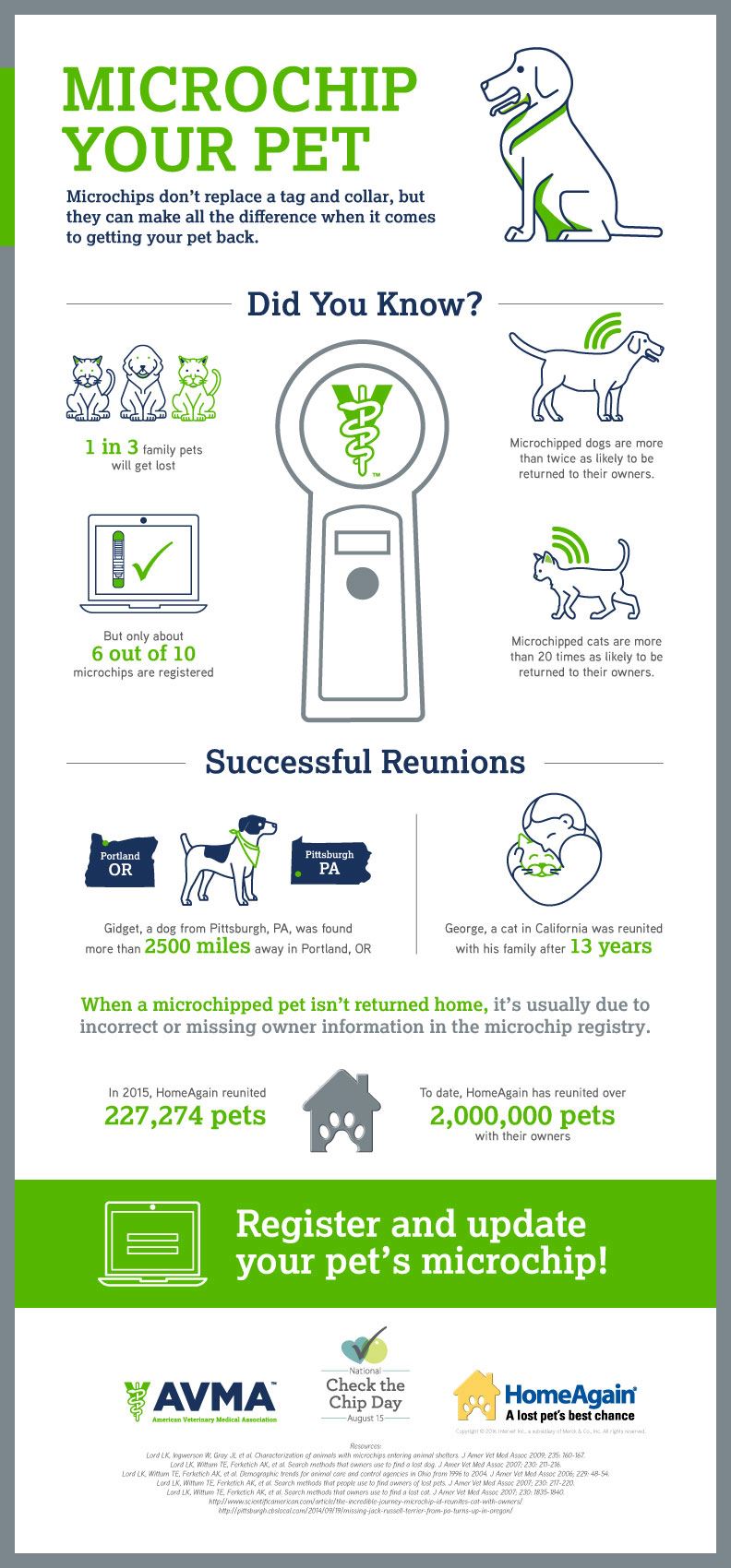
We’ve talked about microchipping before; about what they are and the benefits of getting your pet microchipped. Microchipping is a safe and easy way to greatly increase the chances of your pet being reunited with you, should they ever get lost or separated from you. A study from the American Veterinary Medical Association found that about 22% of non-microchipped dogs who enter shelters are reunited with their families, while 53% of microchipped dogs were returned home. Non-microchipped cats were reunited with their families only 2% of the time, while over 38% of microchipped cats were returned home. Those numbers make a very good case for microchipping your beloved furry friends.
Check the Chip Day serves as a reminder to all pet owners about microchipping their pets. Make an appointment with your veterinarian to get your pet microchipped if you haven’t already done so. Double check the registration information for your pet that has already been microchipped, to make sure the information is correct and up-to-date. You can also make an appointment with your vet to have them scan your pet’s chip, or ask them to do so during your next scheduled appointment, to make sure it is functioning properly and in the original position, as they can migrate a bit.
Microchipping your pet is only half the process; it is the responsibility of the pet owner to ensure that the microchip is 1) registered in the first place, and 2) the information is kept up to date. A microchip is only as good as the information associated with it. If you microchip your pet but fail to register them in the database, the chip is essentially useless. If you move, the pet goes to live with someone else, etc. and that information is not updated, you are severely limiting the chips usefulness. Once microchipped, your pet should still wear a collar and tags, as the microchip is only one part of their identification system and depends on being brought to a shelter or vet that will scan for a chip. If you pet is found by someone and there are no tags or collar, they may just keep the animal or try to find them a new home if there are no tags present.
You need to make sure the database your chip is registered with is the manufacturer’s database; there are many databases that you can register your pets chip with, but the one that animal shelters and veterinarians will search if they find your pet with them is the manufacturers’. In the United States, AAHA’s Universal Pet Microchip Lookup tool is linked to many of the manufacturers’ registries. In Canada, there is Pet Lynx, which is a single web-based animal registry that accepts all forms of ID, beyond microchips, such as tattoos, visual tags, passports, and more. In Australia and New Zealand, there is the Australasian Animal Registry (AAR) which is the largest and most comprehensive animal registration and recovery service in Australasia.
Keeping your pet’s registration information in the database up-to-date is critical for the success of reuniting lost pets with their families. Take advantage of this reminder day and spend some time evaluating your pet’s microchipping situation. If they ever go missing, you’ll be happy you did!
Check out the great infographic AVMA created to promote this cause:


